These birds wear an iridescent coat of green, gold, blue-violet plumage which changes color depending on where the light hits it.
A vibrantly colored bird resplendent in a coat of shimmering greens golds and violets with long legendary tail feathers.
Meet the Resplendent Quetzal
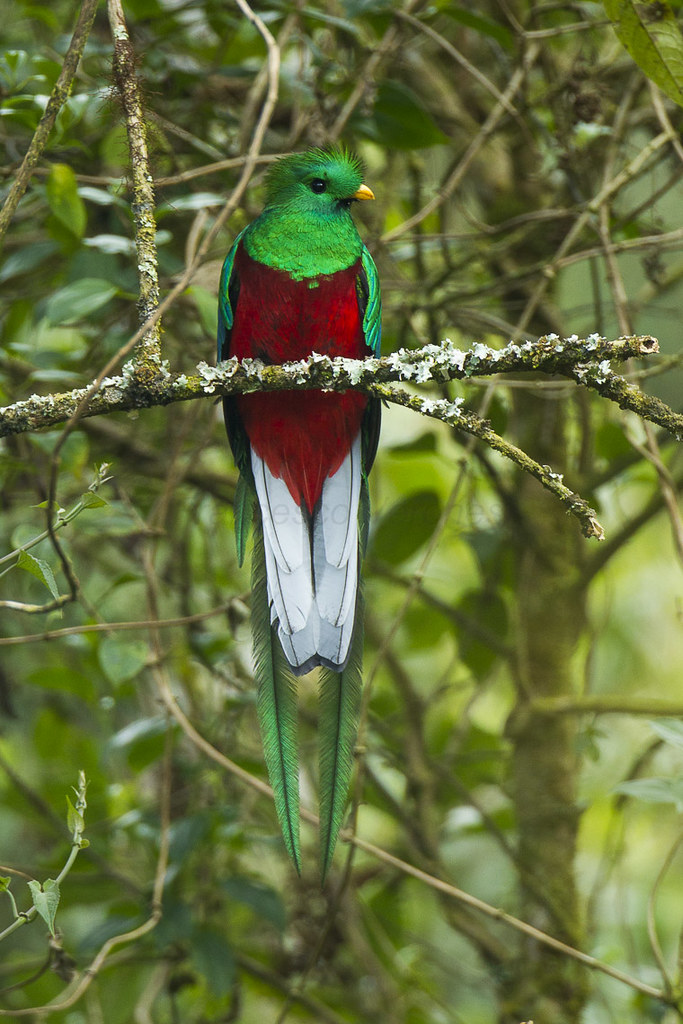
Photo Courtesy of Francesco Veronesi / CC BY-SA 2.0
The resplendent quetzal (Pharomachrus mocinno), is a bird in the trogon family of birds. Named resplendent for very good reason, these birds wear an iridescent coat of green, gold, and blue-violet plumage which changes color depending on where the light hits it. A shimmering red breast and belly make them that stunning. Males wear a helmet-like crest and a splendid long tail, which in the breeding season is longer than his body.
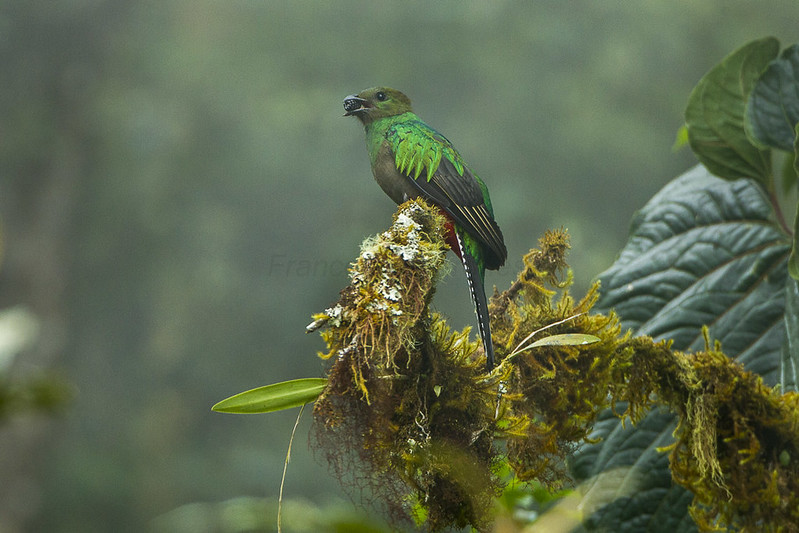
Photo Courtesy of Francesco Veronesi / CC BY-SA 2.0
The females do not have long the long tail feathers the males have, but they do share the vibrant blue, green, and red coloring of their mates.
Their bills are black whereas the males are yellow.
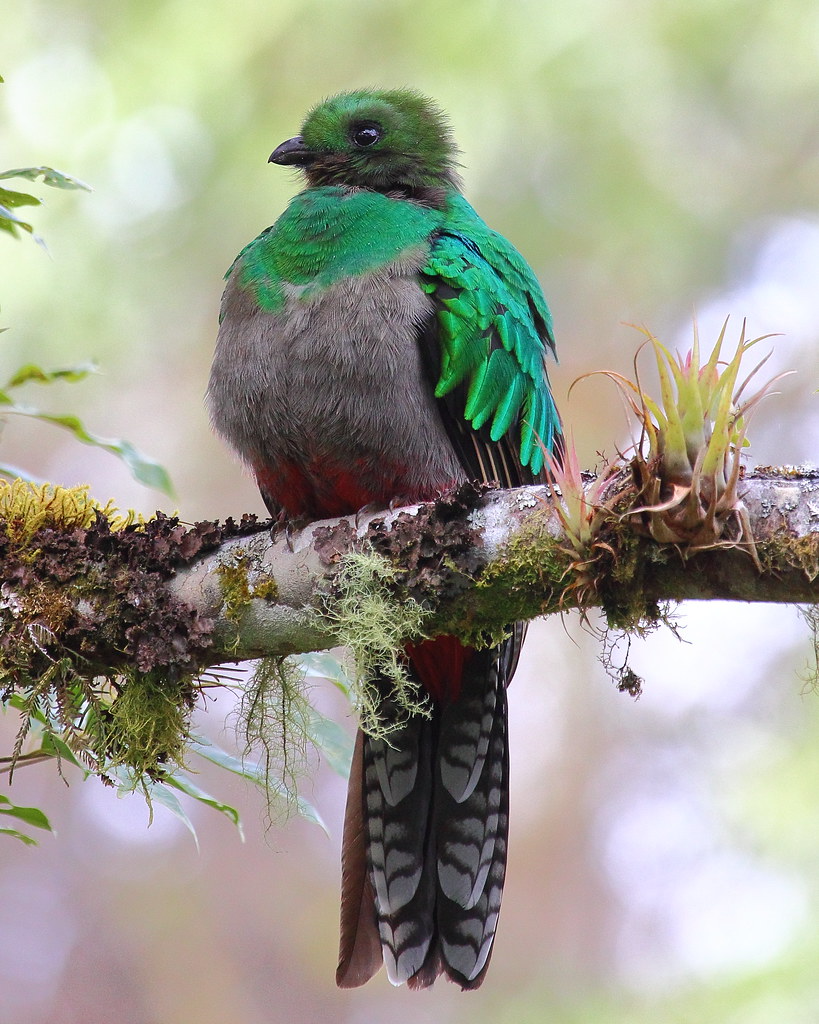
“Female resplendent quetzal” by ryanacandee is licensed under CC BY 2.0.
These birds live in the montane cloud forest from southern Mexico, through Costa Rica, into western Panama.

“Male Resplendent Quetzal” by ryanacandee is licensed under CC BY 2.0.
Resplendent quetzals are specialized fruit-eaters, focusing mainly on wild avocados and other fruit of the laurel family. These birds swallow the fruit whole and then regurgitate the pips, helping spread the trees. They will also supplement their diet with insects, frogs, and lizards.
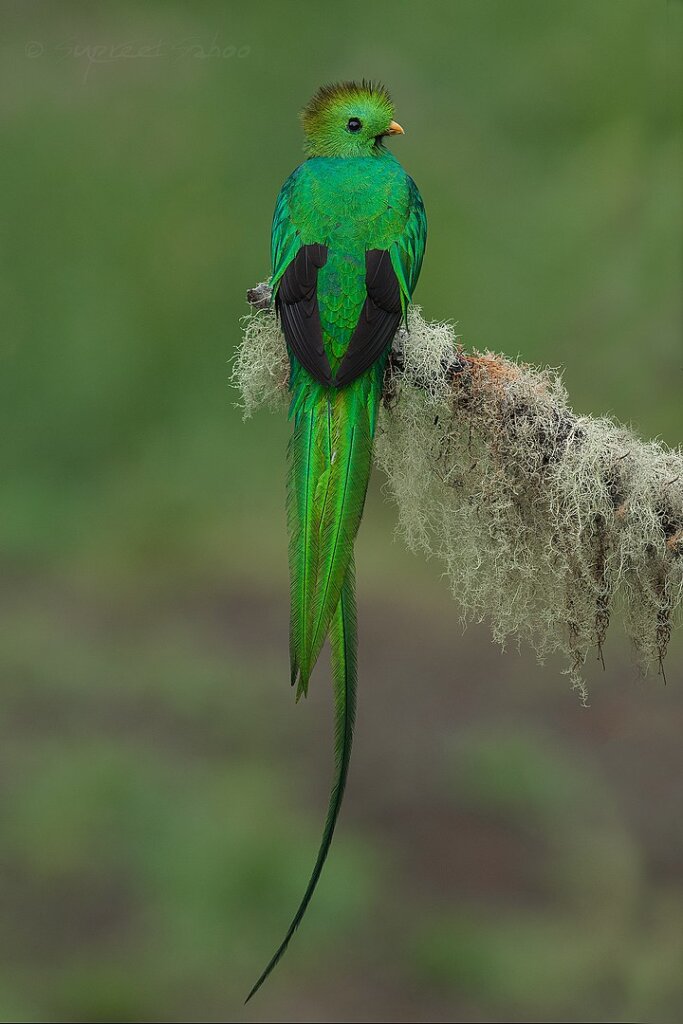
Photo Courtesy of Supreet Sahoo / CC BY-SA 4.0
The breeding season begins at different times of the year depending on what country the birds live in, March to April in Mexico, May to June in El Salvador, and March to May in Guatemala. The females lay two eggs in a nest in a hole which they make in a rotten tree about 200 feet high. Both parents take turns at incubation which lasts around 18 days, usually, it’s the male’s roles during the day, and the females at night. Both parents also take turns feeding the young once they hatch, with the female usually abandoning the role, leaving it to the male towards the end of rearing the hatchlings.
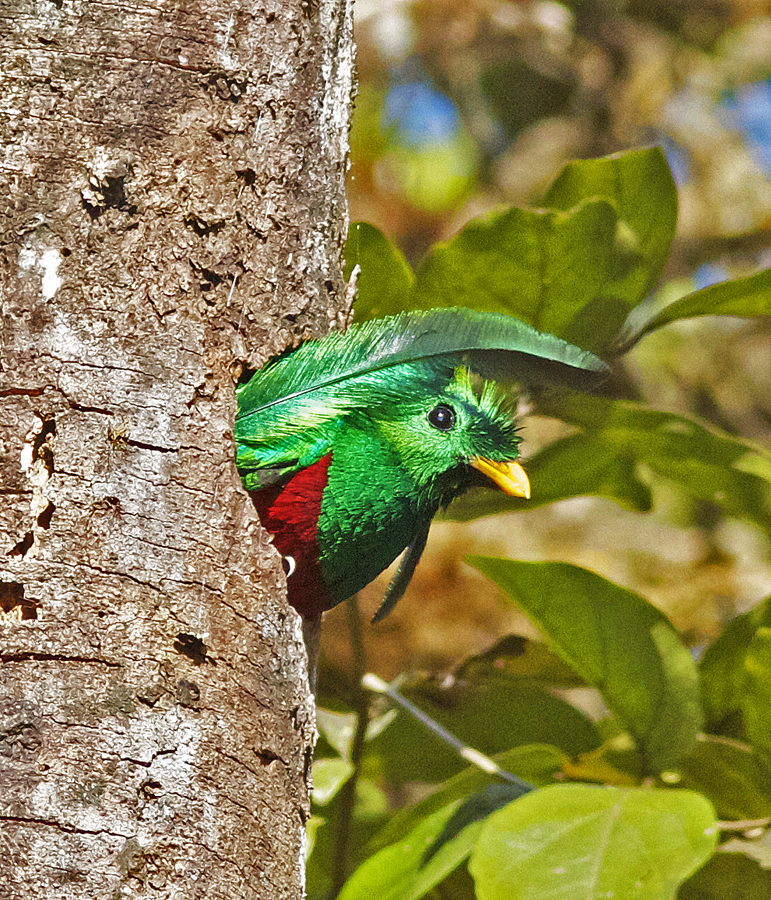
Photo Courtesy of Joseph C Boone / CC BY-SA 3.0
The resplendent quetzal is sadly classified as a near-threatened species due to habitat loss. Thankfully some birds do live in protected areas.
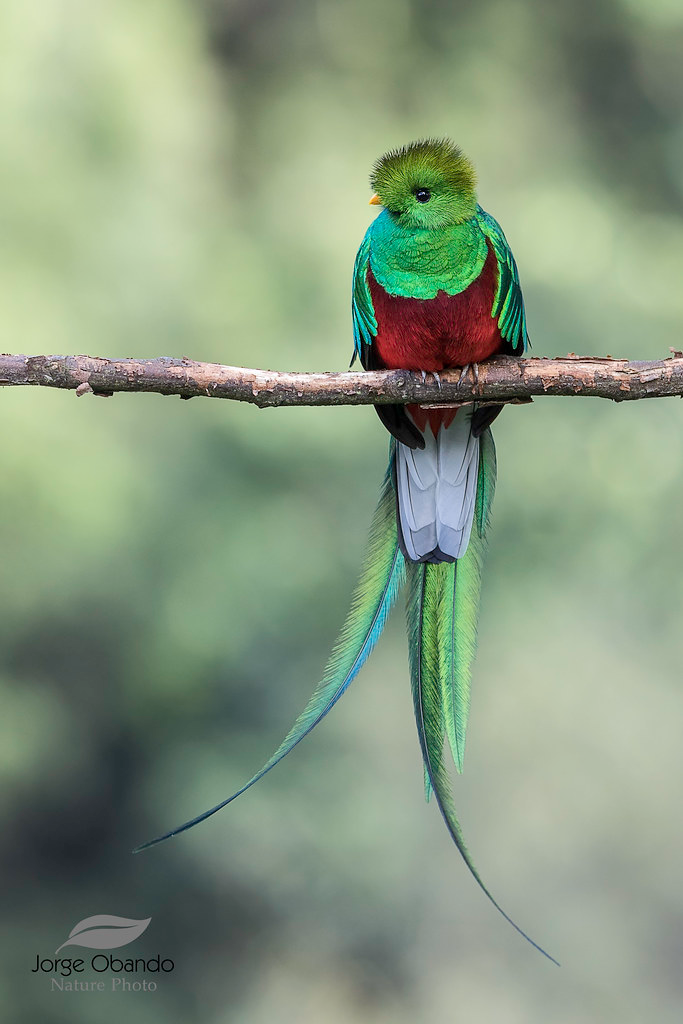
“Resplendent Quetzal” by Jorge Obando Gutierrez is licensed under CC BY-SA 2.0.
Watch and listen to this bird right here in the video below:
H/T Wikipedia – Creative Commons Attribution-ShareAlike License.
A Stunning Bird That Wears Its Autumnal Colors With Pride!
Please SHARE this article with all your bird-loving friends and family.